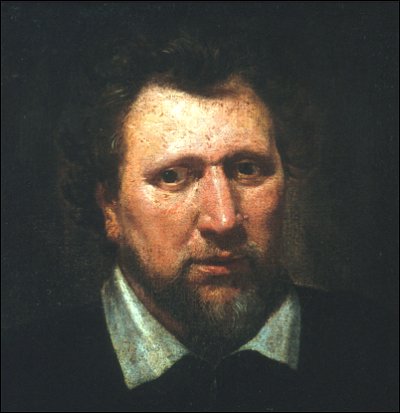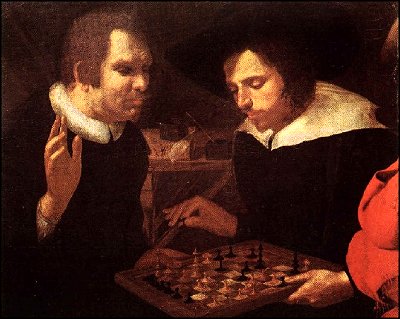Ben Jonson: To the memory of William Shakespeare

.jpg)
B e n J o n s o n
(1572-1637)
To the memory of
my beloved master
William Shakespeare,
and what he hath left us
To draw no envy, Shakspeare, on thy name,
Am I thus ample to thy book and fame;
While I confess thy writings to be such,
As neither man, nor muse can praise too much.
’Tis true, and all men’s suffrage. But these ways
Were not the paths I meant unto thy praise;
For silliest ignorance on these may light,
Which, when it sounds at best, but echoes right;
Or blind affection, which doth ne’er advance
The truth, but gropes, and urgeth all by chance;
Or crafty malice might pretend this praise,
And think to ruin, where it seemed to raise.
These are, as some infamous bawd, or whore,
Should praise a matron; what would hurt her more?
But thou art proof against them, and, indeed,
Above the ill-fortune of them, or the need.
I, therefore, will begin: Soul of the age!
The applause! delight! and wonder of our stage!
My Shakspeare rise! I will not lodge thee by
Chaucer, or Spenser, or bid Beaumont lie
A little further off, to make thee room:
Thou art a monument without a tomb,
And art alive still, while thy book doth live
And we have wits to read, and praise to give.
That I not mix thee so, my brain excuses,
I mean with great, but disproportioned Muses;
For if I thought my judgment were of years,
I should commit thee surely with thy peers,
And tell how far thou didst our Lily outshine,
Or sporting Kyd, or Marlow’s mighty line.
And though thou hadst small Latin and less Greek,
From thence to honour thee, I will not seek
For names: but call forth thundering Eschylus,
Euripides, and Sophocles to us,
Pacuvius, Accius, him of Cordoua dead,
To live again, to hear thy buskin tread,
And shake a stage; or, when thy socks were on,
Leave thee alone for the comparison
Of all that insolent Greece, or haughty Rome
Sent forth, or since did from their ashes come.
Triumph, my Britain, thou hast one to show,
To whom all scenes of Europe homage owe.
He was not of an age, but for all time!
And all the Muses still were in their prime,
When, like Apollo, he came forth to warm
Our ears, or like a Mercury to charm!
Nature herself was proud of his designs,
And joyed to wear the dressing of his lines!
Which were so richly spun, and woven so fit,
As, since, she will vouchsafe no other wit.
The merry Greek, tart Aristophanes,
Neat Terence, witty Plautus, now not please;
But antiquated and deserted lie,
As they were not of nature’s family.
Yet must I not give nature all; thy art,
My gentle Shakspeare, must enjoy a part.
For though the poet’s matter nature be,
His heart doth give the fashion: and, that he
Who casts to write a living line, must sweat,
(Such as thine are) and strike the second heat
Upon the Muse’s anvil; turn the same,
And himself with it, that he thinks to frame;
Or for the laurel, he may gain a scorn;
For a good poet’s made, as well as born.
And such wert thou! Look how the father’s face
Lives in his issue, even so the race
Of Shakspeare’s mind and manners brightly shines
In his well-turnèd, and true filèd lines;
In each of which he seems to shake a lance,
As brandished at the eyes of ignorance.
Sweet Swan of Avon! what a sight it were
To see thee in our water yet appear,
And make those flights upon the banks of Thames,
That so did take Eliza, and our James!
But stay, I see thee in the hemisphere
Advanced, and made a constellation there!
Shine forth, thou star of poets, and with rage,
Or influence, chide, or cheer the drooping stage,
Which, since thy flight from hence, hath mourned like night,
And despairs day, but for thy volume’s light.
Poem of the week – November 30, 2008

kemp=mag poetry magazine
More in: Archive I-J, Shakespeare, William

